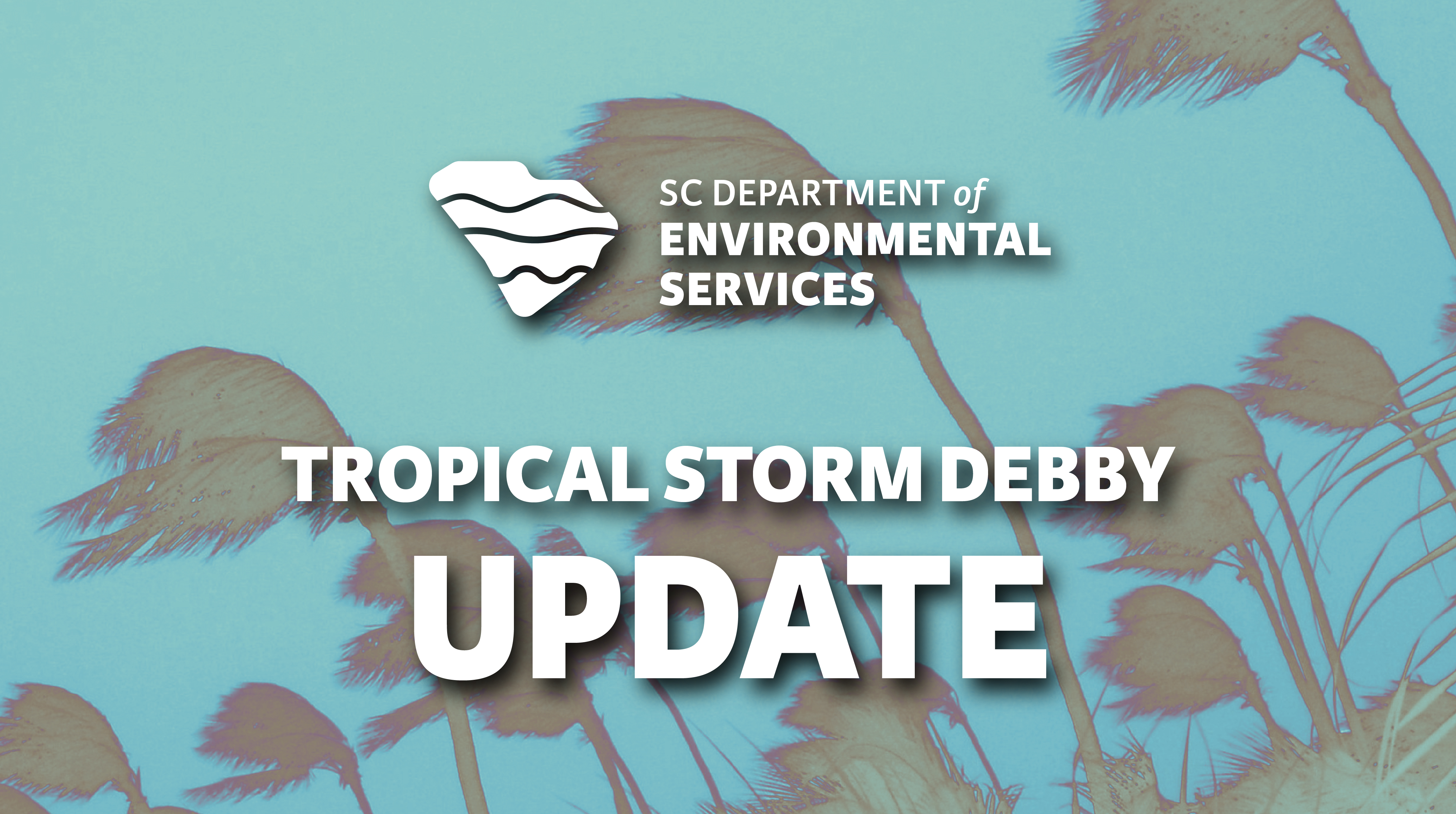
Aug. 19, 2024
Final Update
Dams
- SCDES dam inspectors performed 248 post-storm dam assessments and no urgent dam safety issues have been observed.
- These post-storm assessments are performed at dams in heavily impacted areas of the state. Our inspectors conduct these assessments to observe the structural integrity of dams after substantial rainfall to determine whether any immediate actions need to be taken by the dam owners or local officials need to be notified of any concerns.
Coastal Properties
- Bureau of Coastal Management staff completed post-storm damage assessments along the coast. Staff assessed structures on 168 properties on four beaches (Garden City, Isle of Palms, Sullivan’s Island, and Edisto Beach).
Private Drinking Water Well Owners
- If your well is flooded, contact our Private Well Hotline at 1-888-761-5989 or visit des.sc.gov/flooddrinkingwatersafety for guidance about the steps you can take to have your well water tested and your well disinfected.

